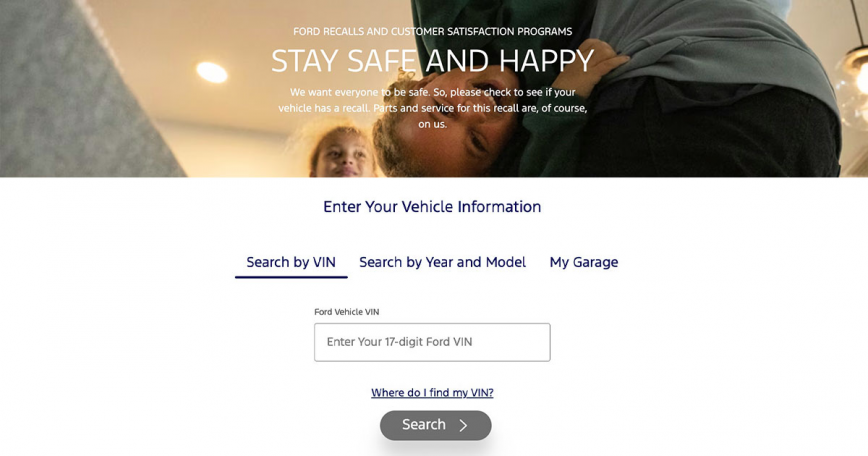New Major Recall: 199k Honda, Ford, BMW Vehicles Affected

Major Vehicle Recalls: Honda, Ford, and BMW Among 199,000 Affected Cars
In the latest vehicle recall announcements, the National Highway Traffic Safety Administration (NHTSA) highlighted several issues impacting approximately 199,000 vehicles across multiple brands, including Honda, Ford, and BMW. Owners of the affected models should take immediate steps to address these safety concerns to ensure their vehicles remain safe and operational. Here’s a detailed breakdown of the key recalls issued between May 12 and May 18.
Honda Ridgeline Recall: Rearview Camera Issue
Honda has issued a significant recall affecting over 187,000 Ridgeline trucks from model years 2020 to 2024. The recall stems from a problem with the rearview camera tailgate wire harness, which may become worn and break over time. This defect can prevent the rearview camera image from displaying, significantly increasing the risk of accidents when reversing.
To resolve this issue, Honda dealerships will replace the rearview camera tailgate wire harness at no cost to the vehicle owners. Notification letters will be sent to affected owners by July 1. Owners can contact Honda customer service at 1-888-234-2138 for more information. Honda has assigned recall number YI7 to this issue.
Recalled Honda Vehicles:
- 2020-2024 Honda Ridgeline
BMW Recall: Seatbelt Malfunction
BMW is recalling 3,256 vehicles from the 2024 and 2025 model years due to a potential seatbelt malfunction. According to the NHTSA report, the seatbelt system in these vehicles may not detect whether passengers are belted. This issue can prevent the seatbelt warning light from illuminating and might also cause the supplemental restraint system (SRS) to fail during a crash, increasing the risk of injury.
BMW will inspect and replace the front seat lower seat belts if necessary, free of charge. Notification letters will be sent on July 5. Owners can contact BMW customer service at 1-800-525-7417 for further assistance.
Recalled BMW Vehicles:
- 2024 XM
- 2025 X5 sDrive40i
- 2025 X5 xDrive40i
- 2025 X5 M60i
- 2025 X5 M
- 2025 X5 xDrive50e
- 2025 X6 xDrive40i
- 2025 X6 M60i
- 2025 X6 M
- 2025 X7 xDrive40i
- 2025 X7 M60i
- 2025 Alpina XB7
Ford Recall: Software Error Affecting Drive Power
Ford has recalled 8,727 vehicles due to a software error in the hybrid powertrain control module (HPCM). This error may cause the vehicle to unexpectedly shift into neutral, leading to a sudden loss of drive power and increasing the risk of a crash.
Ford will update the HPCM software free of charge at its dealerships. Notification letters will be sent out starting May 23. Owners can contact Ford customer service at 1-866-436-7332 for more information. Ford’s recall number for this issue is 24S33.

Recalled Ford Vehicles:
- 2020-2022 Ford Escape
- 2021-2022 Lincoln Corsair
- 2022-2024 Ford Maverick
How to Check for Recalls
Vehicle owners who are concerned about potential recalls on their cars can check USA TODAY’s automotive recall database or search the NHTSA’s database. The NHTSA website allows owners to search for recalls using their vehicle identification number (VIN), providing a quick and easy way to find relevant information.
Understanding the Recall Process
When a vehicle manufacturer identifies a safety defect, it must notify the NHTSA and the vehicle owners about the issue. The manufacturer also provides a remedy, which is typically carried out at no cost to the owners. This can include repairs, part replacements, or software updates, depending on the nature of the defect.
Importance of Addressing Recalls
Ignoring a recall can have serious consequences, including increased risk of accidents and injuries. It’s crucial for vehicle owners to promptly respond to recall notices and get the necessary repairs or updates done. This not only ensures their own safety but also the safety of other road users.
The Broader Impact of Vehicle Recalls
Vehicle recalls can sometimes affect the reputation and financial stability of automotive manufacturers. Large-scale recalls, like those involving hundreds of thousands of vehicles, often lead to increased scrutiny from regulatory bodies and consumers. Manufacturers must manage these situations carefully to maintain trust and avoid long-term damage to their brands.
The recent recalls issued by Honda, Ford, and BMW highlight the ongoing importance of vehicle safety and the need for manufacturers to promptly address any defects. Vehicle owners should remain vigilant and proactive in checking for recalls, ensuring their vehicles are safe and compliant with all safety standards. As the automotive industry continues to evolve, maintaining high safety standards remains a top priority for manufacturers and regulatory bodies alike.
By staying informed and taking immediate action when recalls are announced, drivers can help prevent accidents and ensure their vehicles remain in top condition. Whether it’s a rearview camera issue, a seatbelt malfunction, or a software error affecting drive power, addressing these problems promptly is crucial for the safety of everyone on the road. Photo Credit –@Motortrend, John M. Vincent / U.S. News & World Report,

